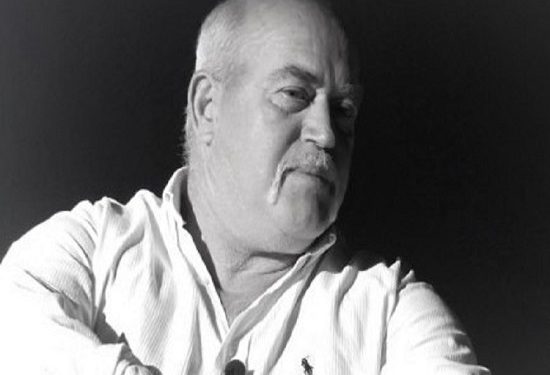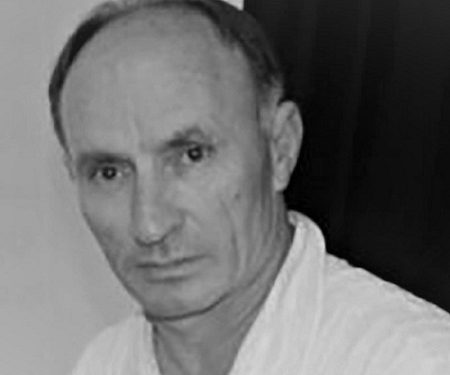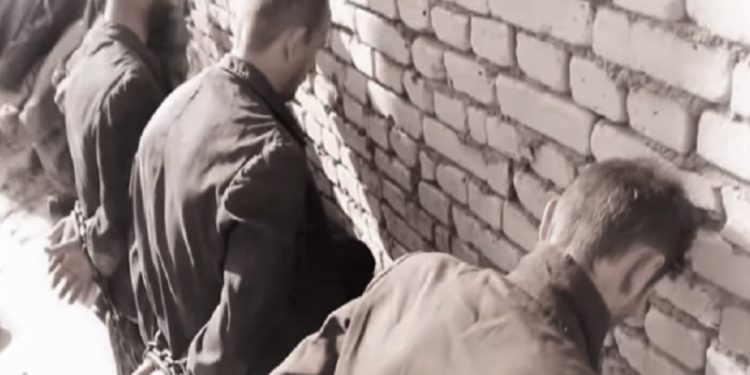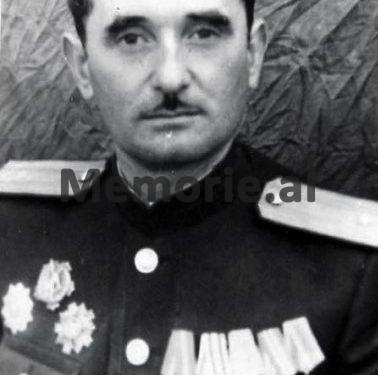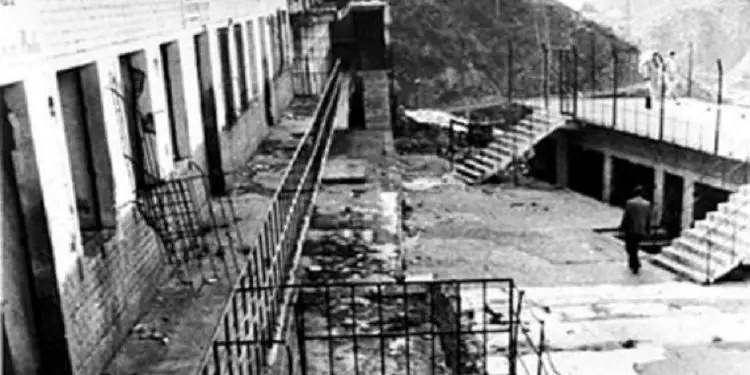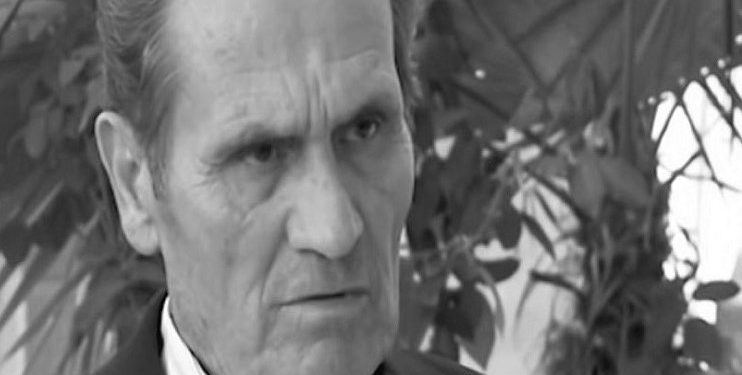From Xhevahir Gradica
-An unusual story by Kujtim Kaziu, about the camp policemen who cruelly tortured the prisoners and left them to die in the mine galleries-
Memorie.al / It were the winter of 1979, when Kujtim Kaziu ended up in Spaçit prison as a political prisoner. In addition to the torture by the executioners, the work in the mine was very difficult for the prisoners who had no food, no clothes. Kujtim Kaziu remembers with great pain his friends who survived the inhuman torture in that prison, but the two young men who died in the rubble of that mine, in the prison of Spaçi, is more in his mind.
“In the gallery the temperature was 60 degrees and burst of heat, while outside the temperature was -17 degrees and as soon as we took the wagon out, we were covered in snow vapor from the condensation of the body temperature, with what was outside. On these fronts, I worked with Haxhi Hoxha (former head of the anti-communist organization in Shkozet, who went to prison at the age of 18), Sokrat Manen, Bujar Gjinin, Ali Gjuzin, etc.
Two of us pushed the 2-ton wagon full of pyrite up to 1 km. We were young and faced great hardship. There were also strong guys at the front who helped others, such as: Bedri Blloshmi, Zef Bushgjoka, Foto Stefani. In the gallery, we sat naked and our feet soaked from the water seeping into our boots.
They treated us like slaves. We ate very badly, with 700 gr. – 800 gr. bread a day and soup with spinach, when we put the spoon in, it was filled with gravel, because the spinach was not washed at all, it was put in the cauldron full of mud” – ex-prisoner Kujtim Kaziu, originally from Kruja district, recounts.
For the former political prisoner, Kujtim Kaziu, one cannot forget the fierce faces of the policemen – executioners of the Spaçi prison, who were never satisfied with the torture, hunger and ill-treatment of those boys and men, who were unjustly serving their sentence in prison infamous of Spaci. Peter Koka is one of them.
“The executioner of Spaçi, Pjetër Koka, even to eat moldy bread and soup with worms, flies and stones, kept us for two hours in a row, outside in the cold of Spaçi, at a temperature of -20 degrees. When we returned to the camp, exhausted and tortured, they stripped us naked, to see if we had any hard tools, crowbars, boards or other things with us.
In 1984, while working, I broke my leg. I spent two weeks in Rrëshen and then in the prison hospital in Tirana. They put me in plaster and transferred me to Shënkolli prison in Lezhë. Two years later, I moved to the construction camp of Bulqiza young. I missed watching a crutan. With a truck, a driver from Fushë-Kruja comes, who was bringing construction materials.
It was Sejfulla Halili and I knew her. We had grown up with him and I missed him. He also seemed to want to talk to me, as he had the same longing. I plucked up the courage and spoke to him. As soon as the truck left, I was approached by the work officer, Col. Toska, policeman Beqir Vreneçi and another policeman, Ndue Jaku. They put me in the shed and tied me to the bed.
They took a rifle and burned my body, shooting me one after the other, until they got tired. I couldn’t move for more than a week, because of the wounds. In 1988, a part of the prisoners were sent to build the Tërnova camp, then to Ward 325 (prison) in Tirana, for new constructions, to the Bardhori camp in Kavajë, and finally, to build villas at “Blloku “, in the Rest House of the Soldiers of the Ministry of Internal Affairs, at Plepat on Durrës Beach.
This is where I was released, on March 31, 1990, coming out alive, after the processes of overturning that dirty, murderous and barbaric system had begun to be felt”, recalls Kujtim Kaziu.
Torture and the intention to eliminate us physically…!
“I have seen with my own eyes how prisoners were left in the gallery, how they died asking for help and how they were mutilated and massacred. In 1983, I was at the front, in the gallery. Luc Vukaj from Vermoshi i Shkodra and Manush Çuka from Erseka worked near my front. The front had only 4 pyrite wagons. The working policeman was called Dod Ndreka, while the free brigadier was Preng Deda.
They saw the front and had to decide to allow the works or not. The gallery had shown obvious signs of collapse and this, both Luca and Manushi, made it clear. Both were young men, they were convicted for attempted escape and agitation and propaganda. The policeman and the brigadier were ordered to enter the gallery. “Oh the norm, oh the spirit”, – they said to the two young men.
Luc Vukaj and Manush Çuka were scared after being threatened that they would not leave the gallery alive if they did not enter the front. It was past midnight. We were the third shift. The gallery gave the next collapse, and after a while, a huge mass fell on both of them. I heard Luca’s screams, which came and went.
Manushi had an air tube in his mouth and as the tube remained outside the collapsed massif, we were able to cut through the material and pull him out alive. Luc Vukaj was taken out after three days of remaining in the gallery. As far as I remember, none of them had reached the age of 20. After this event, Manushi was no longer human. The horror he saw and experienced hit his mental system”, recalls Kujtim Kaziu with tears in his eyes.
The memory also shows how they protested after intentional accidents or murders in prison. “Whenever serious accidents and deaths occurred, due to the lack of technical conditions, we found ways to protest. Luc Vukaj was not the first to remain in the gallery. Since I saw with my own eyes the whole scene of Luca’s horrible death, I wrote a letter to Hekuran Isa.
Then Hekurani was the Minister of the Interior. I told him in detail how the incident had happened. I wrote in this letter, which I sent to the minister (to be posted, I gave it to the prison courier), that; police officer Dod Ndreka and brigadier Preng Deda were the causes of the death of prisoner Luc Vukaj. But the letter did not come out of Spaçi prison. I learned this not many days later.
A prisoner told me that no letter even went to our homes without being read by the prison command. Thus, it happened in this case as well, even though I was addressing the minister. They called me to the command, they put pressure on me, and they advised me that if I spoke about what I had seen, they would kill me. The prison police, that is, those who were friends with the two perpetrators, wanted to eliminate me physically.
When the prisoners who knew me found out, they did not leave me alone for a moment, and the accident I suffered in the gallery a year later saved me from being killed. I did not enter the gallery for 2 weeks. I couldn’t sleep and became obsessed. Luc Vukaj and Manush Çuka appeared before me, Luca’s last screams and moans, the prisoners digging up the material, with shovels and nails. Many of the prisoners of conscience have encountered such unbelievable things in these camps.
Many were executed in one form or another, being declared as: “accidental death”, others were mutilated or lost their memory. Many were separated from their wives and children and suffered depression. But there were also those who survived to witness the crimes and massacres of that regime”, ex-political prisoner, Kujtim Kaziu, from the district of Kruja, says with pain at the end of his confession. Memorie.al




